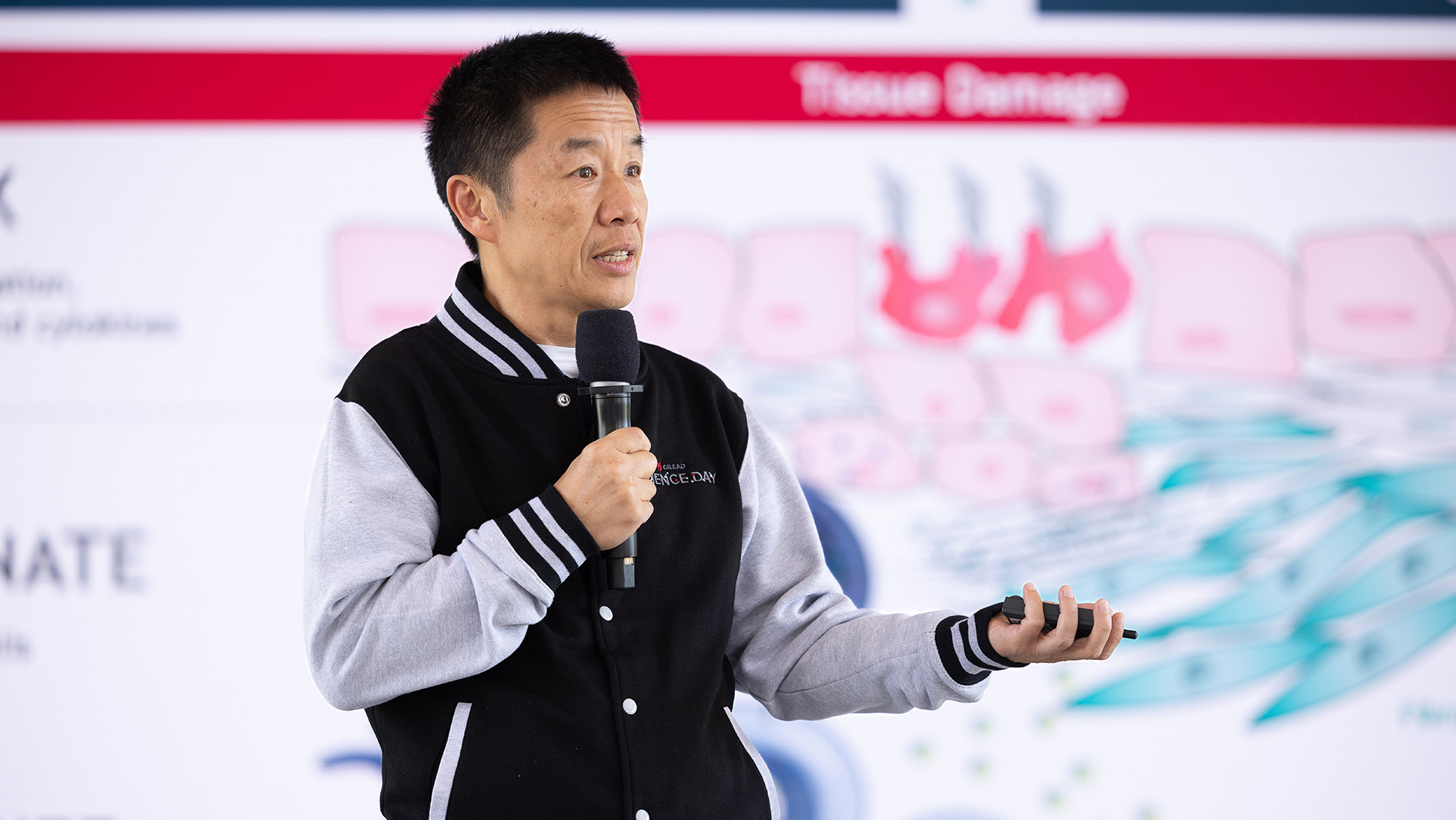Share Article
The best way to brighten Wenjun Ouyang’s day is to bring him a bit of positive data, showing even small steps forward. Those direct data connections with the science help invigorate Wenjun, Gilead’s Senior Vice President, Inflammation Research, because he knows all too well that progress in drug development is hard-won.
Fortunately, he receives frequent data updates from his team in these days as Gilead’s Inflammation portfolio grows and advances. The pipeline now includes 13 assets, ranging from preclinical compounds to those in Phase 2 clinical trials, as well one therapy approved for use in the U.S. for the liver condition known as primary biliary cholangitis or PBC.
Many patients currently lack effective therapies for inflammatory diseases, that include a broad category of conditions such as lupus, rheumatoid arthritis, inflammatory bowel disease and atopic dermatitis. But Wenjun and his team are working hard to help provide treatment options for these diseases that emerge when a body’s immune system turns its defenses on its own tissues.
“We are committed to researching innovative therapies that can deliver deeper efficacy and long-term remissions or potentially even cures for patients,” says Wenjun.
Complexities of Autoimmune Disorders
Wenjun was first drawn to the immune system as a PhD student, where he had the opportunity to rotate into several different labs. Graduate students are usually assigned a low-profile project, but one professor gave Wenjun a key role on a difficult project at the frontier of T cell biology and signaling. Attracted by both the challenge and the immune system itself, Wenjun was hooked.
“It energized me — I like to address the most important questions,” he says. “I also realized how beautiful and important the immune system is for our body. It holds a lot of answers for our health.”
Inflammation is a complex, albeit normal process of the immune system’s activity. When the immune system is battling a virus or even a cancer cell, it can be a good thing. But when the immune system’s army turns on healthy tissues, it leads to inflammatory conditions and autoimmune disorders.
As Wenjun advanced in his career in pharma, he retained his passion for the immune system and his attraction to a meaningful challenge. So when he was offered the opportunity to lead research as part of Gilead’s nascent Inflammation team in 2021, he jumped at the chance.
Growing an Inflammation Pipeline
Wenjun was also inspired by Gilead’s leadership in HIV and its development of a cure for hepatitis C.
“Gilead’s embrace of inflammation complements its existing strengths in virology and oncology,” he says, explaining that oftentimes researchers working in virology or oncology will be working to amplify or turn up the effects of the immune cell. Meanwhile scientists in inflammation may be pursuing the same pathway with the objective of blocking it or turning it down.
There was something else about Gilead that made Wenjun confident about his choice to come to Gilead. Long known for its small molecule team, Gilead now also has the ability to develop large molecules, and Kite brings in cell therapy capabilities. Together, through close collaboration, Kite is looking to broaden the impact of cell therapies beyond oncology, aiming for potential inflammatory disease cures. All in all, the Gilead team can turn to any of the three modalities available to target inflammatory diseases.
“As a scientist, I only need to think about ideas. I don’t need to worry whether another team can develop a drug or not,” Wenjun says. Gilead is currently advancing several compounds that could be first-in-class, which means they are the first to use a particular tactic against an inflammatory target, as well as several with the potential to be best-in-class, or both.
In the labs down the halls from Wenjun’s office, his team is driving advances, with the goal of delivering new advances for patients. Several data readouts are planned for 2026.
“Next year is going to be a very exciting year to help us build our foundation in inflammation,” Wenjun emphasizes. “We have the opportunity to see the innovation firsthand."

